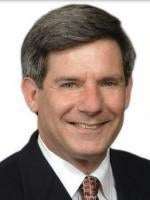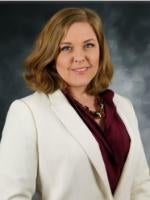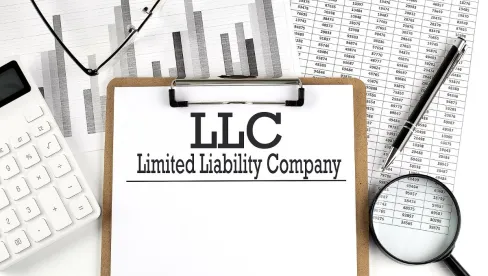From the IMS Insights Podcast Vault: Dr. Chuck Cowan, economics and statistical expert, speaks with IMS about key considerations for the future of post-pandemic company culture and business development. Listen above or read the interview transcript below. (Originally recorded May 2021)
Hello and welcome to the IMS Insights Podcast. Today, we’re speaking with esteemed economist and statistical expert Charles Cowan, PhD about post-pandemic key considerations for the future of company culture and business development.
Dr. Cowan is the Chief Executive Officer and co-managing member for the national statistics, finance, and economics consultancy, Analytic Focus. With more than 40 years of experience, Dr. Cowan is an IMS Elite Expert, specializing in the development of financial research and its use in improving shareholder values, economic impact studies, and risk management.
Teresa Barber:
Dr. Cowan, I know you’ve been working with a number of clients, really around the globe, to help them build more reliable models for using HR analytics, and I’m using the word HR analytics, but really just taking that information, being able to apply analytics to help inform those decisions. What right now are you saying are really the key considerations that companies and firms need to be looking at with respect to their commercial real estate portfolios, their workforce, how to handle those next steps right now, which I know there’s some urgency as restrictions ease, but also just business as usual, those decisions that need to be made regardless. So what are you seeing with clients?
Chuck Cowan:
I have to tell you, you’re asking me probably a year or two early. The reason is because I think people haven’t figured this out fully. So part of what I’m seeing is talent retention at all levels, because now I’m seeing a lot of discussion for partners and senior partners in law firms moving and transitioning to where they think that they have the best balance of work life and home life. That’s become much more of a consideration because now they’re home when they weren’t previously. And so you need to have that kind of balance, but it’s being enforced. And if you’re able to work from home and you like working from home, then that becomes another part of the calculus that wasn’t there previously. So I think you’re asking me a little, I mean, we’re a year and a half into the pandemic, but now we’re coming off the pandemic, but the dynamics have changed.
Chuck Cowan:
I don’t think they’ve worked their way through completely. So let’s think about culture. When I was at Pricewaterhouse, we worked really hard on corporate culture and Pricewaterhouse was really good at developing a culture of people enjoying where they were working and having kind of a combination of the social and the business and the intellectual. And I really enjoyed working there. And then they merged with another firm and that culture went out the window and that was a loss for Pricewaterhouse. The new company then had to build a new culture because there were two cultures that were somewhat different. And so it was hard to bring them together. Well, if you are even a small sized firm and I look at mine as being a medium-small firm, we work on developing a culture. We work on a particular way of doing things and it’s reinforced every day.
Chuck Cowan:
How do I do that when people are only coming in on occasion, and I don’t see them? And the only opportunity I have to talk to them is through a Zoom call or a Cisco WebEx call, where I am having an interaction with them about this one specific project, but I’m not having a discussion with them and they’re not talking to each other across projects, which is where the culture develops as opposed to the uniqueness of each project. So I think maintaining and then developing a culture is going to be incredibly hard in the future. And yet that’s a key piece of retention, both to keep the best people and also just to keep people in general, as opposed to having a kind of a merry-go-round. I do think that, as I said, the other problem with a lot of the models and the thinking that I see is that there is always the reaction to what’s going on today, as opposed to thinking about where am I going to be in five years, and how do I get people from here to there as opposed to it just kind of happening.
Chuck Cowan:
So if there are going to be better ways to communicate, people get Cisco war room or whatever the other innovations are that are going to come along, how do I anticipate that and work that into my system as opposed to playing catch up at the end of the process? So again, this is all part of that HR forecasting and HR doesn’t operate in a vacuum. I think that’s the other problem. You reach out, you talk to the HR department and don’t recognize that HR has got to interact with finance, and it’s got to, with the sales and with the operations and HR is kind of the spearhead for a lot of the other operations, but you actually have to have something behind you. You can’t just be a spearhead with no spear. So I think I just made up a new metaphor.
Teresa Barber:
I like it!
Chuck Cowan:
Yeah. So, the point is that anything that you can do that would forecast how work going to be improved or easier in the future, will ripple through the company. It won’t just be some innovation that’s brought about by HR because they could provide a great service by forecasting what’s going to happen in the future and think about how a futurist thinks about what the world is going to be like in five years or 10 years and how that benefits their company. I don’t see any of that going on in HR at all.
Teresa Barber:
Yeah. Interesting. And then that drive to adapt really when you start to see the tide turning a little bit. I want to ask you too, is there a way that HR analytics or even a more dynamic model, like what you’ve been building with some of the clients you’ve been working with, can help firms identify those hotspots where retention is low or there really is potential risk or poor leadership or high accident rates, things like that?
Chuck Cowan:
Yeah. I would say some of the models do that now, but maybe not in as focused a method. So if I have a basic retention model and I look at what’s going on in the company overall, and I see fluctuations, more people are leaving, fewer people are leaving, I may not know necessarily why that is. So a basic retention model that just looks at pay and employee engagement may miss some key items that are really impacting, but only in parts of the company. So if I have poor supervision on one line, in an assembly plant, or if I have poor supervision and a lot of accidents in a assembly plant, I need to know about that because that’s going to cause more turnover than anything else. And you can’t compensate people for bad leadership. I mean, you can offer more money, but at some point, bad leadership is going to trump that, and you want to be able to think about what’s really the best for your company. Does the supervisor need training? Does the supervisor need to go find a competitor to work for so they can bring them down and you improve your own company?
Chuck Cowan:
Same thing with accidents. I have heard from several companies about concerns about accidents and what causes them, why do they happen? But over and above that, what’s the impact of accidents on retention? And the fact is, is that there you’re looking at what I would call, a lag defect because somebody having an accident doesn’t mean that I’m going to have an accident. And after a couple of those, you start to think, and then somewhere down the road, you say, “Well, this isn’t a safe place to work. I’m going to go work someplace else.” Well you want to avoid that. I mean, you’d like to avoid accidents to begin with, but there that’s a residual effect that is going to impact a large number of your workers. It doesn’t just impact the next guy over, it has this sort of ripple effect throughout your company.
Chuck Cowan:
So models don’t look at that right now. There is not the deep dive into where do I find a ripple effect? Where do I find an effect because something happened six months ago? They don’t do that. And that is an area where things could grow and expand and improve in terms of how one uses these types of techniques within HR to better understand why you have this ebb and flow that you may not pick up in any other way.
Teresa Barber:
Very interesting. And Dr. Cowan, you mentioned law firms a minute ago, and I wanted to talk with you, we were recently, you and I, were discussing a recent report from Thomson Reuters on the state of the legal market. And they were looking at US firms and UK firms, had conducted some surveys, and they were finding really interesting things that 75% of partners were saying the number one area to reduce spending and budget for the firm was real estate. And another finding that they had in that report was one third of senior partners would plan to leave their firm in two years if they weren’t able to work remotely or have that kind of work-life balance that you mentioned. And traditionally we think of law firms, especially big law, and we’re thinking much more traditional, brick and mortar you’re meeting clients, but we’ve seen so much disruption over the last year, even jury trials in the US handled over Zoom and you’re talking about remote war rooms being set up potentially now. And we’re definitely seeing some of that start to emerge. Are big law firms facing some of the same challenges here that we’re seeing in private companies?
Chuck Cowan:
So I’m going to repeat what I said about five minutes ago, which is you’re probably asking me a year or two early. So let me tell you what I think is going to happen because you’re right, that Thomson Reuters article was very well-written and very interesting in terms of the topics it covered. But I saw what you said about the partners saying that they would leave if they weren’t able to work remotely and that they wanted to focus on reduction in costs. But most law firms that I work with big, medium, or even small, still have to make a certain amount of investment in some type of infrastructure.
Chuck Cowan:
So if you are going to have client meetings or you’re going to have a settlement discussion or some other type of negotiation that typically it may be in the old days, that was always done in person and in the last year it’s been done via the internet, but what’s going to happen in the future? And I don’t think anybody’s thought that through. They’re just thinking about, “Well, I’d like to work at home.” Really? Would you like to work at home, but you’re going to be remote on a settlement where everybody else’s around the table, because just this morning or last night, actually, the CDC came out and said, “You don’t have to wear masks anymore if you’re vaccinated.” So if you, and all of your colleagues and your clients and your opponents are all vaccinated, what’s to keep you from all getting around the table and that may be better for a discussion?
Chuck Cowan:
On the other hand, maybe five years from now, once the Cisco war room takes over, you won’t need to do that. Everybody will be able to be in the same room virtually, so what I’m saying is, is that I think that this is the short-term reaction to the pandemic, but that first of all, there’s a certain amount of infrastructure that you need and maybe depositions will go away and you don’t need quite as much office space because they won’t go away. They’ll just be online like they are now.
Chuck Cowan:
But on the other hand, there may be other reasons to have a meeting space like that. But the other problem, so we talked about half an hour ago about training, I still think that despite the fact that the senior partners all want to work at home, the fact is, is that you can’t as effectively develop people without having some personal interaction with them, which is why I think you’re going to see this huge push for schools to reopen and all the students go back in class. There’s a lot of discussion within the educational community about how students learn from one another as much as they learn from their teacher, because they exchange ideas or one person explains to another how something is done. That was certainly my experience getting my doctorate. But I know also from working with a lot of educators, that that is a key component of learning.
Chuck Cowan:
Well, if it’s a key component of learning in schools, it’s also going to be a key component of learning on the job that you still need to have this kind of interaction. So I get that everybody would like to work from home, or at least it makes sense that they work from home part time. But then if they’re going to be in the office a couple of days, and they’re not going to be in the office a couple of days, where does the reduction in space come from? Are they willing to share offices so that Mr. Smith gets an office Monday, Tuesday, and Mr. Jones gets an office Thursday and Friday and it’s empty on Wednesday so that they cut down on their need for space, or is everybody going to say, “Well, that’s fine for everybody else, but I need to have my office,” in which case there’s no reduction in office space. So I understood that that was the reaction after the first year when everybody was forced to work from home. But now if they’re saying that they want to work two days from home, what are they willing to give up to be able to affect that? And if they’re not willing to give up something, then I don’t see any savings in terms of what they’re paying on commercial space.
Teresa Barber:
Makes sense. And then for law firm officers, big law officers, administration, how do they walk that fine line to retain those senior partners who are feeling itchy and saying, “I really like this work-life balance I hadn’t had before.” How do you build a model, and you mentioned the hub and spoke model, but maybe it’s just a case of, we don’t have the models yet for what would be, how all of this is going to sustain.
Chuck Cowan:
Yeah. Well, I will say that, I think also that there is an advantage that the senior, senior partners have, which is that they are senior partners, but there’s very few of those. So maybe those guys work at home, but the intermediate partners don’t get to make that call because somebody has got to be around to herd everybody else. So I think that it’s way too early to say, “This is the way it’s going to work out,” because I think that there are items like we were just discussing who gets to keep their office, for example, that haven’t been fully thought through and that somewhere down the road, the realization is going to hit people and it’s going to be a lot more messy than it seems to be right now. I’m thinking about taking up a sideline of sewing boxing gloves for law firms, let them duke it out.
Thank you to Dr. Charles Cowan for speaking with us today, and a special thanks to our listeners.





 />i
/>i

